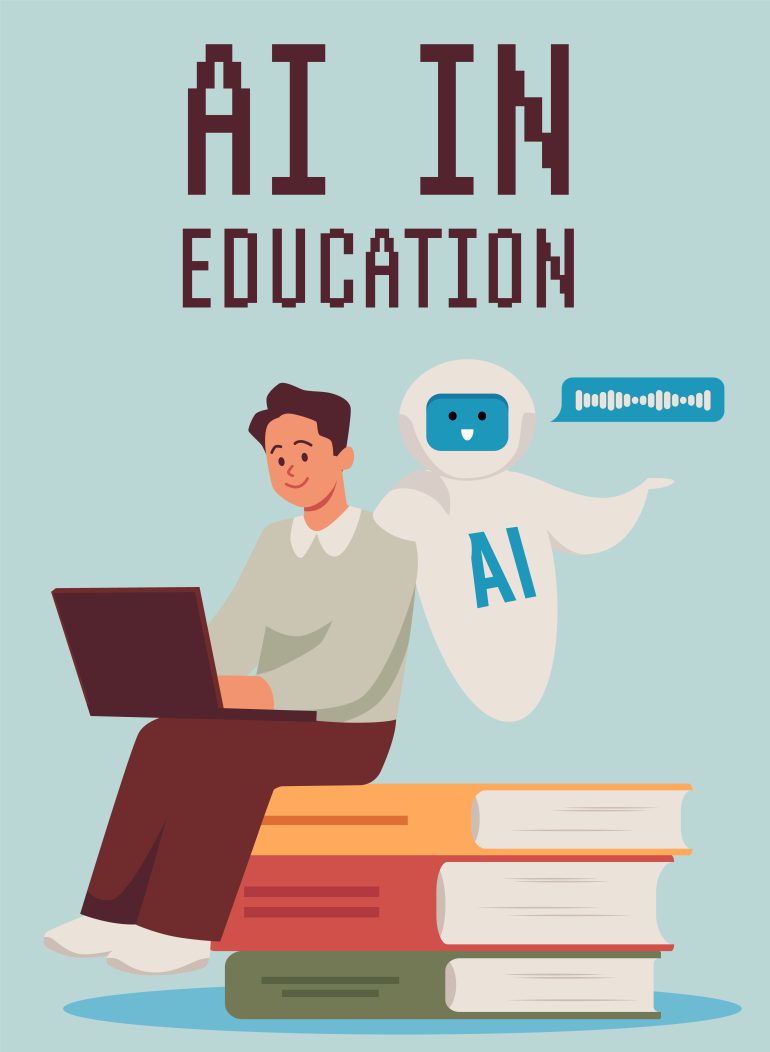A reflection by ICT Co-ordinator, Matthew Monaghan, on how an international school has explored using AI to personalise learning and empower its students as global citizens.
Our Dutch International Primary School (DIPS), grounded in the ethos of global citizenship and lifelong learning, embraces innovative approaches to education. This January 2024, I was part of a school team which attended the BETT Conference in London, where a presentation by Dan Fitzpatrick, author of “The AI Classroom,” sparked a school-wide initiative.
Fitzpatrick’s insights on Artificial Intelligence (AI) in education resonated deeply. AI holds immense potential to personalise learning journeys for each of our students. Imagine intelligent tutors who adjust difficulty based on individual needs, fostering a supportive and engaging environment. Furthermore, AI can unlock vast knowledge resources, simplifying complex topics and offering interactive explanations.
It is important to remember that AI is envisioned as a valuable tool to augment, not replace, human educators. By automating repetitive tasks and providing personalised support, AI can free us teachers to focus on fostering critical thinking, creativity, and collaboration – key essential 21st century skills.
Building on this momentum, our dedicated ICT team championed a whole school staff development day focusing on AI integration in our classrooms.
A reflection by ICT Co-ordinator, Paul Fraser, on delivering a staff development day on AI.
As a tech enthusiast and part of my school’s ICT workgroup, I recently led a series of workshops to show my colleagues how to use AI in their classrooms. At first, there were some worries about job security and whether AI would be used responsibly, but as we explored tools like Google Gemini and ChatGPT, excitement and curiosity took over.
Our AI workshops focused on writing clear instructions to get the best results from AI, brainstorming lesson ideas and materials, and even using AI to improve our existing lesson plans. One fun activity was showing how ChatGPT could become any historical or literary figure! Teachers who were hesitant at first became excited when they saw how AI could make their lives easier and improve student learning. They learned to create personalised materials, come up with more engaging activities, and even streamline their planning, giving them more time to focus on their students.
The response from the workshops was fantastic, with many teachers surprised and excited about what AI could do. They left feeling not just prepared to use AI in their classrooms, but inspired with creative ideas to make it work for them. We’re only at the beginning of this journey, but it’s obvious that AI is here to stay and will play a major role in shaping the future of education.
We are confident that AI will empower our students to become well-rounded, adaptable learners prepared for success in a globalised world.
